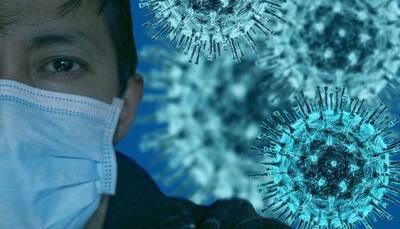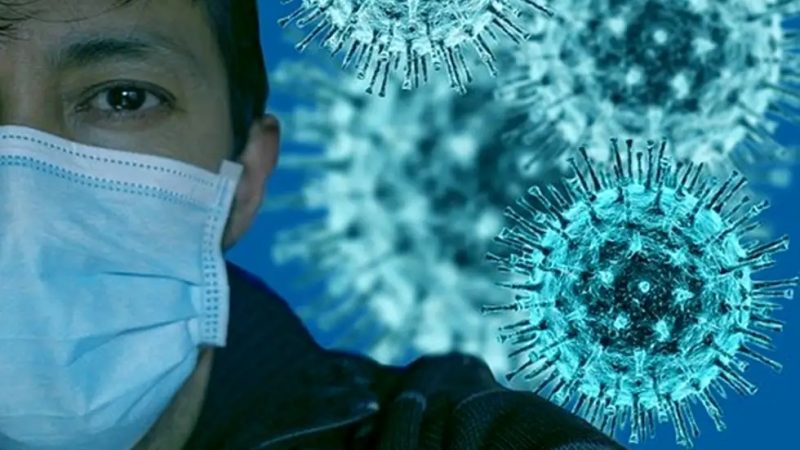- Research shows that being in a room with fresh air can reduce risk of infection from particles by over 70%
- The film is part of the Hands. Face. Space. campaign which urges public to adopt simple health behaviours to help reduce the risk of the virus spreading
A new public information campaign launched by the Government to highlight how letting fresh air into indoor spaces can reduce the risk of infection from coronavirus by over 70%.
The campaign, which forms part of wider ‘Hands. Face. Space’ guidance, sees the release of a new short film created with scientists and an engineer at Leeds University.

The film illustrates how coronavirus lingers in the air in spaces with no fresh air, increasing the risk of people breathing in infected particles, and how the risk can be reduced significantly by regularly ventilating enclosed areas.
As we spend more time indoors, experts are recommending that the public open windows for short, sharp bursts of 10 -15 minutes regularly throughout the day, or leave windows open a small amount continuously, to remove any infected particles lingering in the room.
Additionally, it is advised that any household systems that use outdoor air, including kitchen or bathroom extractor fans, are used correctly and regularly as an additional method to remove infected particles.
Airing indoor spaces is particularly important when:
1. People have visitors (when permitted) or tradespeople in their home, for example for construction or emergencies;
2. Someone from a support bubble is meeting with another household indoors;
3. A care worker is seeing a patient indoors; or
4. If someone in the household has the virus, as this can help prevent transmission to other household members

Professor Catherine Noakes, from Leeds University who advised on the film, said:
“When a room does not have any fresh air, and where people are generating large amounts of aerosol through activities such as singing and loud speech, that is when transmission of coronavirus is most likely. Fresh air must come from outdoors – recirculating air just means the aerosols containing the virus move around the same room rather than being extracted outdoors.
Coronavirus is spread through the air bydroplets andsmaller particles (known asaerosols) that are exhaled from the nose and mouth of an infected person as they breathe, speak or cough[2]. They behave in a similar way to smoke but are invisible. The majority of virus transmissions happen indoors. Being indoors, with no fresh air, the particles can remain suspended in the air for hours and build up over time[3].
The longer people spend in the same room as these particles, the more likely they are to become infected.

GP, Dr Amir Khan said:
“As we approach winter, and inevitably spend more time indoors, fresh air is extremely beneficial. For COVID-19, it is important to ventilate indoor spaces if someone in your home has the virus as this can help prevent transmission to other household members.
“You should also let fresh air into your home when you have any visitors and just after they leave in case they are infected. Remember, opening windows alongside washing your hands, covering your face and making space is also essential in reducing your risk of COVID-19.”
Ventilation to provide fresh air in enclosed spaces is just as important as the other actions, so remember this as well as Hands, Face, Space. These are the most effective ways we can all control the spread of the virus. Visit gov.uk/coronavirus for more information.
The public are encouraged to continue to be vigilant of coronavirus symptoms which include a new continuous cough, high temperature, or a loss or change in your sense of taste or smell. If you or someone you know, displays any symptoms please get a free test by calling 119 or visiting NHS.uk.
Also Read: WHO voices ‘real hope’ to end COVID-19
Also Read: UNICEF to deliver Covid-19 vaccines to 92 poorest countries









